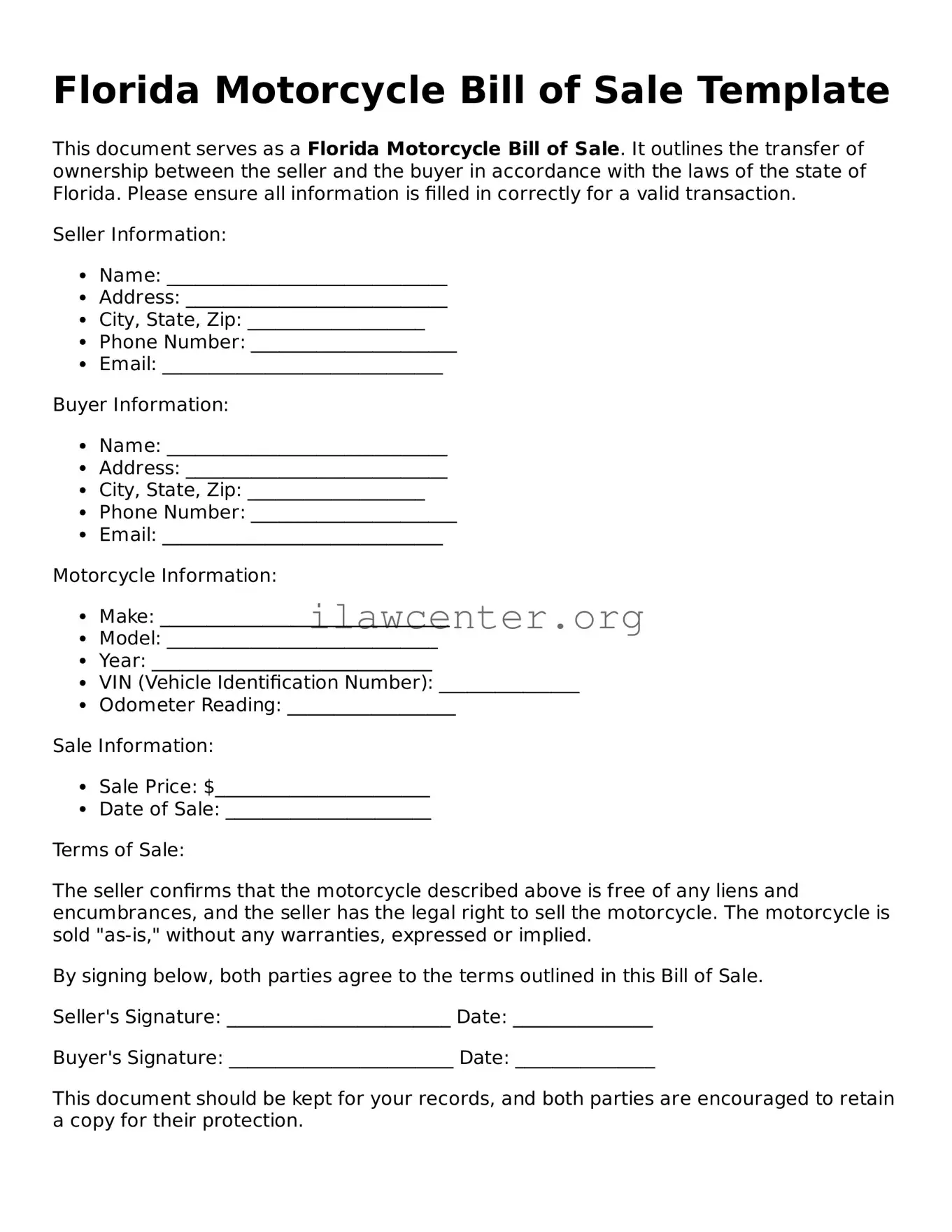Instructions on Utilizing Florida Motorcycle Bill of Sale
Completing the Florida Motorcycle Bill of Sale form requires careful attention to detail. This document serves as a legal record of the sale between the buyer and the seller. After filling it out, both parties should keep a copy for their records to ensure a smooth transfer of ownership.
- Begin by locating the form. You can usually find it online or at local DMV offices.
- At the top of the form, enter the date of the transaction in the designated area.
- Provide the name and address of the seller in the appropriate fields. Ensure the information is accurate.
- Next, fill out the buyer's name and address. Double-check the spelling.
- In the motorcycle section, write down the make, model, year, and Vehicle Identification Number (VIN) of the motorcycle being sold.
- Indicate the sale price of the motorcycle. This amount should reflect the agreed-upon price between the buyer and seller.
- Both parties must sign and date the document. Each signature should be placed in the designated area to validate the sale.
Once the form is completed, each party should retain a copy for their records. This serves as proof of the transaction and can be useful for future reference.
